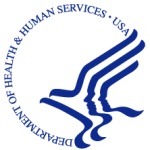- Settore: Government
- Number of terms: 33950
- Number of blossaries: 0
- Company Profile:
United States Department of Health and Human Services, Radiation Emergency Medical Management
A nutrient in the vitamin B complex that the body needs in small amounts to function and stay healthy. Vitamin B6 helps keep nerves and skin healthy, fight infections, keep blood sugar levels normal, produce red blood cells, and some enzymes work properly. Vitamin B6 is a group of related compounds (pyridoxine, pyridoxal, and pyridoxamine) found in cereals, beans, peas, nuts, meat, poultry, fish, eggs, and bananas. It is water-soluble (can dissolve in water). Not enough vitamin B6 can cause mouth and tongue sores and nervous disorders. Vitamin B6 is being studied in the prevention of hand-foot syndrome (a disorder caused by certain anticancer drugs and marked by pain, swelling, numbness, tingling, or redness of the hands or feet). Also called pyridoxine.
Industry:Health care
A nutrient that the body needs in small amounts to function and stay healthy. Vitamin C helps fight infections, heal wounds, and keep tissues healthy. It is an antioxidant that helps prevent cell damage caused by free radicals (highly reactive chemicals). Vitamin C is found in all fruits and vegetables, especially citrus fruits, strawberries, cantaloupe, green peppers, tomatoes, broccoli, leafy greens, and potatoes. It is water-soluble (can dissolve in water) and must be taken in every day. Vitamin C is being studied in the prevention and treatment of some types of cancer. Also called ascorbic acid.
Industry:Health care
A nutrient that the body needs in small amounts to function and stay healthy. Vitamin D helps the body use calcium and phosphorus to make strong bones and teeth. It is fat-soluble (can dissolve in fats and oils) and is found in fatty fish, egg yolks, and dairy products. Skin exposed to sunshine can also make vitamin D. Not enough vitamin D can cause a bone disease called rickets. It is being studied in the prevention and treatment of some types of cancer. Also called cholecalciferol.
Industry:Health care
Cancer of the adrenal gland that has spread to fat or organs and to lymph nodes near the adrenal gland or to other parts of the body, such as lungs, liver, bones, and abdomen.
Industry:Health care
Cancer is found (1) outside the lymph nodes throughout one or more organs and may be in the lymph nodes near those organs; or (2) outside the lymph nodes in one organ and has spread to lymph nodes far away from the organ; or (3) in the lung, liver, or bone marrow.
Industry:Health care
Cancer is found (1) throughout one or more organs that are not part of a lymphatic area (lymph nodes, tonsils, thymus or spleen) and may be in lymph nodes near those organs; or (2) in one organ that is not part of a lymphatic area and has spread to organs or lymph nodes far away from that organ; or (3) in the liver, bone marrow, cerebrospinal fluid (CSF), or lungs (other than cancer that has spread to the lungs from nearby areas).
Industry:Health care
Cancer has spread beyond the liver to other places in the body, such as the bones or lungs. The tumors may be of any size and may also have spread to nearby blood vessels and/or lymph nodes.
Industry:Health care
Cancer of soft tissue (muscle, fat, fibrous tissue, blood vessels, or other supporting tissue of the body) that has spread to nearby lymph nodes or to other parts of the body. The tumor may be any size and any grade (a measure of how quickly the tumor is likely to grow and spread).
Industry:Health care
In stage IV AIDS-related lymphoma, the cancer is found (1) in several areas throughout one or more organs that are not part of the lymph system, and it may be in nearby lymph nodes; or (2) in one organ that is not part of the lymph system, and it has spread to lymph nodes far away from that organ.
Industry:Health care
The tumor may be any size, and cancer has spread to distant parts of the body. It may also have spread to lymph nodes and nearby organs.
Industry:Health care
